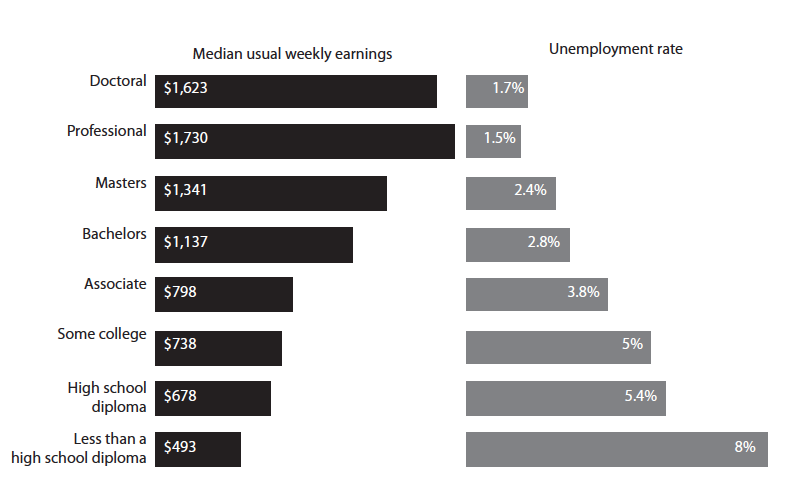Patrick Doudy”s degree barely scratches the surface of his qualifications.
Doudy graduated from the University of Idaho with Bachelor”s of Science in chemistry, but as an app developer, his job doesn”t actually require chemistry at all.
“It”s sort of a cross-section of different kinds of techy and artistic things,” Doudy said.
Doudy said as he was completing his college career, he found out there weren”t many career options for chemistry majors who hold a bachelor”s degree alone – the options that are out there, such as running lab tests, are becoming increasingly automated processes.
That”s when Doudy switched gears.
He said he had dabbled in software development previously, and is primarily self-taught. He and a friend started developing apps together, and the rest is history.
He said his success in a field unrelated to his studies has led him to be skeptical of the real value of a college degree.
“Education is not something that comes from a teacher telling you something. It comes from applying yourself and reading and learning and thinking and producing,” he said.
Yet UI Vice Provost of Academic Affairs Jeanne Stevenson said pursuing a degree has a number of personal and professional benefits.
She said getting a degree can offer higher earning potential and open doors to certain career options that wouldn”t be accessible otherwise, as well as increased job security and potential for professional growth within a company. She said pursuing a higher education is also a way to learn how to overcome personal challenges, and is viewed as an investment in the future.
“So yes, we look at the cost as a challenge – prohibiting for some people – but most people find the investment does open some opportunities that would not have been available,” Stevenson said.
Stevenson said UI is doing many things to aid students while they adapt to find career opportunities in the current job market.
“I think that the university also provides other opportunities for students to get involved and sort of discern who they are and what they might like to do with their lives,” Stevenson said.
UI graduate Julie Williams said she knows the value of higher education on a personal and professional level firsthand.
Williams, who graduated from UI with her Ph.D. in education, works as a science teacher and academic director at a private, residential treatment boarding high school in north Idaho called Northwest Academy.
Williams said her work required her certification, and her position would be unobtainable otherwise. She said in her line of work it is impossible to move up the ladder without proper certification.
“You just get stuck and are unable to progress otherwise,” Williams said. “As your situation changes and you want to be involved in leadership positions it just doesn”t happen without the degrees. You just end up getting stuck in support positions, which is not necessarily a bad thing, but you certainly don”t have employment options that you would otherwise.”
Williams said her degrees have given her professional diversity and allowed her to work in a broad range of professions. She said she also works as a professor at North Idaho College and is the assistant manager of Mirror Lake Golf Course.
Williams said even though her degree was fairly specialized, it still has the potential to be used in a number of different fields and it was a great source of personal growth as well.
“The people I”ve met and the connections I”ve made through that, as well as the numerous mentors I”ve encountered in my educational process have been fantastic,” Williams said.
She said her experiences with higher education have permanently shaped the way she interacts with people. She said college established some of her most memorable experiences, whether that be a day trip with a friend to eat lobster near coastal waters, or a late-night fire drill spurred by someone”s inability to cook popcorn properly.
Williams also acknowledged that though college was the right choice for her, it is not the right choice for everyone.
“Not everybody should go to a traditional school for four, six, eight years – it just doesn”t make sense to do that unless your desires and circumstances are right,” Williams said. “Certain people”s mindsets are open enough that they”re going to get something out of it. The people who are closed off and just go to get the job afterward must understand that that”s a completely different type of training.”
Williams said the first step for anyone considering going to college is to determine if it is the right direction for that person and whether or not they can afford it.
“Some people would do great in college but certainly won”t afford it, so they”ll be there for a semester or two and then have to drop out and be resentful of that experience,” Williams said. “It”s really a balancing act where you have to be determined enough to stick through the hard parts. It”s always going to be hard, but it”s that difficulty that makes it so rewarding.”
Austin Maas can be reached at [email protected] or on Twitter @austindmaas

